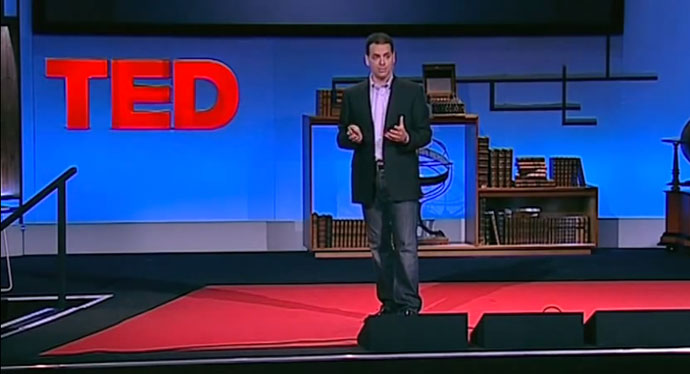4 TED Talks That Will Alter Your Business Perspective
TED Talks are an awesome way to learn and get some new perspective when you desperately need it. These four talks are must-sees if you want to refresh your outlook on marketing, motivation and success.
1. Traditional incentives are bad for business.
Dan Pink’s puzzle of motivation lays out how motivation is actually counterintuitive. Forty years’ worth of research studies show that rewards often decrease our motivation to complete a task.
According to Pink, there’s a discrepancy between “what science knows and what business does.” Rewards work well for only some tasks — the easy and straightforward ones. However, for tasks that require a broader focus and some critical thinking, incentives like cash actually inhibit our ability to get it done.
Using this information, businesses need to transform their approach, steering away from incentives and toward autonomy, mastery and purpose. Through these three avenues, employees will be naturally self-motivated to succeed and solve complex problems. This is exemplified by Google, whose employees can spend 20 percent of their time working on whatever they want. This technique has given birth to projects like Gmail and Google News.
2. Success depends on whether your idea is remarkable; i.e., worth remarking on.
If you’re in any way interested in business or marketing, you’ve probably heard of Seth Godin. His TEDTalk, “How to get your ideas to spread,” explains the essence of marketing and lists a few damaging misconceptions.
Godin uses sliced bread as his first example. Sliced bread existed for 15 years before anyone even wanted it. The credit for making sliced bread a household essential goes to Wonder Bread, which was able to sell the idea, not just the product.
Now that obnoxious selling strategies like infomercials are out of style, businesses have to learn how to use a new strategy. Essentially, we must target the outliers who care specifically about our idea and want to talk about it. The media is so saturated with products, ideas and services that mass marketing has lost its effectiveness.
3. The reason you’ll fail is your own excuses.
In his talk “Why you will fail to have a great career,” Larry Smith lays out the real reasons that most people fail to have great careers and settle for average or mind-numbingly awful ones.
Smith acts out the stream of consciousness that typically runs through the mind of someone who makes excuses: Only geniuses end up with great careers, it’s all a matter of luck, I’m too normal to step outside the ordinary, the only way is to work extremely hard, etc. All of these beliefs and excuses have no logical basis. They’re not rooted in reality, but rather in outdated cultural beliefs.
He warns that many of those who find their passion don’t pursue it because of their relationships — they don’t want to “sacrifice” their marriage or children for a great career. But in reality, who wants to admit to their children that they didn’t follow their dreams because they had kids?
4. The “what” doesn’t sell; the “why” does.
Have you ever wondered what separates incredibly successful people from just plain capable people? According to Simon Sinek, it’s how they inspire their audience. All organizations know what they do, but not all communicate why they do it.
He uses Apple as an example. Their advertisements focus little on what they do (selling computers). They don’t even focus entirely on why they’re different or what makes their products great. Instead, they communicate what they believe in — innovation, going beyond the status quo, and so on. In this way, businesses can easily attract those with the same beliefs and life preferences. “People don’t buy what you do. They buy how you do it,” says Sinek.
Businesses in every industry are surrounded by similar businesses — ones with similar products and services. Thus, stating the “what” and the “how” are not enough. Stating the “why” gives your audience the opportunity to trust and align with your business’s brand.










































